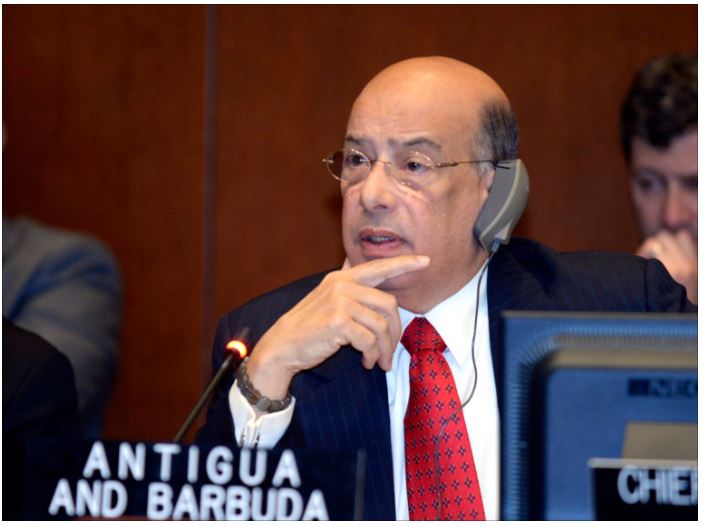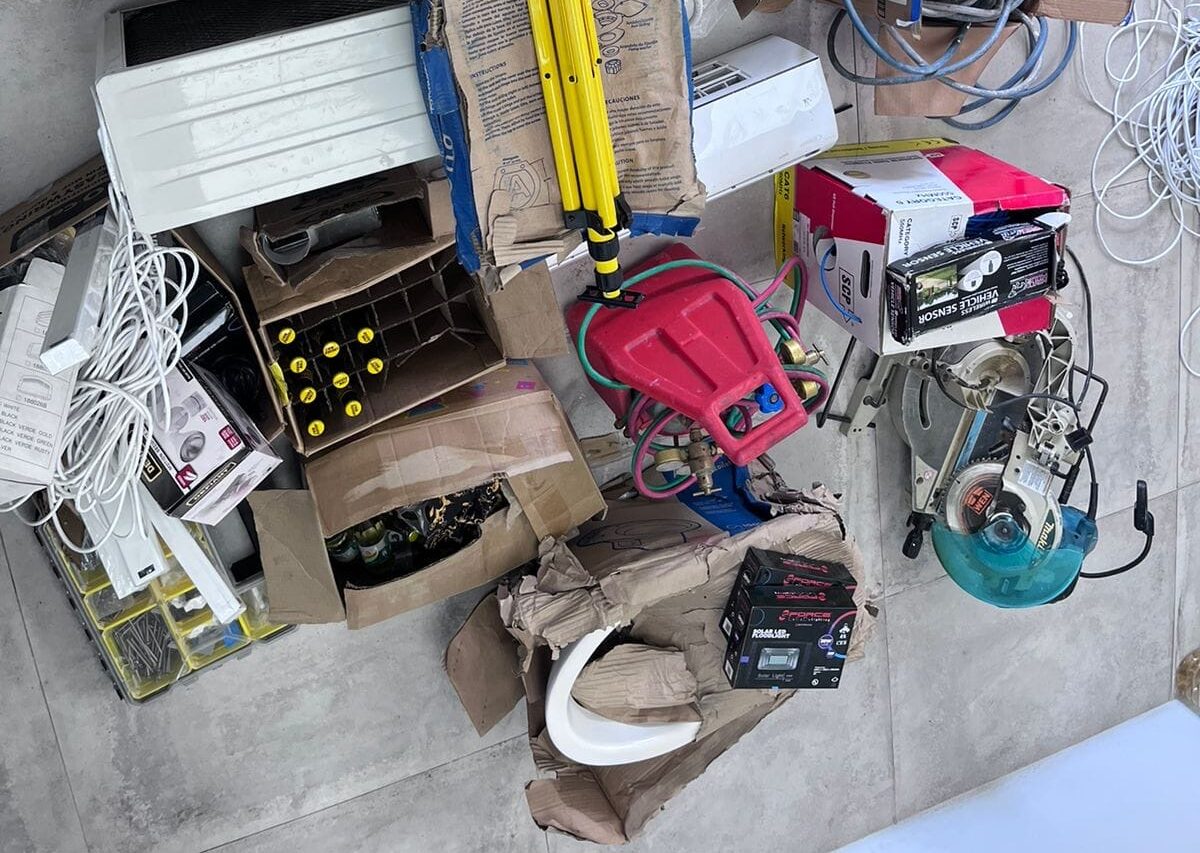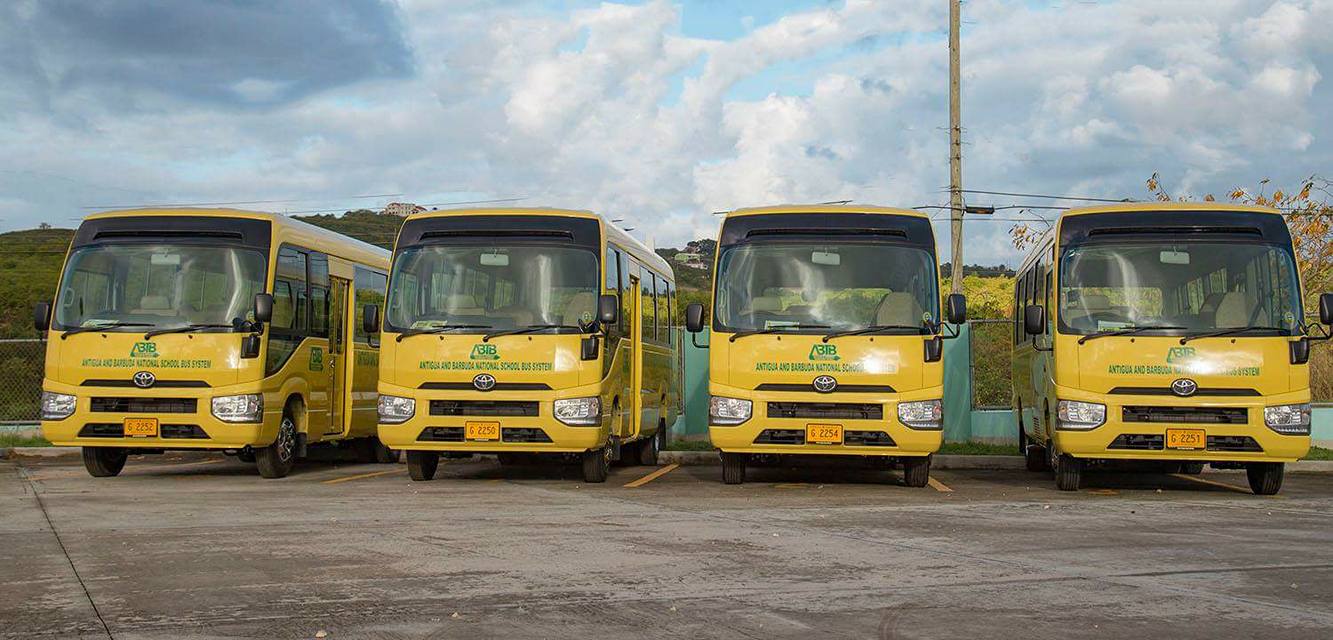By Sir Ronald Sanders
(The writer is Antigua and Barbuda’s Ambassador to the United States of America and the Organization of American States. He is also a Senior Fellow at the Institute of Commonwealth Studies, University of London and Massey College in the University of Toronto)
Gang violence, particularly in schools, and directed at school children, is fast becoming a grave concern throughout the Caribbean.
Recent reports of school children being attacked by hooded gangs with knives and cutlasses and suffering serious injuries, have alarmed parents in Antigua and Barbuda, The Bahamas, Barbados, Jamaica, St Lucia and Trinidad and Tobago. Especially troubling, is an observation, made in November 2021, by the Commissioner of Police of St Lucia, Milton Desir, that criminals have been targeting school children for recruitment into gangs and a life of crime.
In The Bahamas, concerns heightened about school safety earlier this year, following several stabbings and violent encounters between students at public schools. This led to the Education Minister, Glenys Hanna-Martin, telling Parliament that there will be “zero tolerance” for school violence.
In Barbados, after 2 years of incidents at schools, including stabbings, and several violent crimes that resulted in many deaths, the popular on-line publication, Barbados Today, in an Editorial on October 14, warned that if “authorities do not get in front of this issue it will fester and grow”.
The Ministry of Social Transformation in Antigua and Barbuda is clearly so anxious about the emergence of gangs and violence against school children, that one of the remedial actions it proposed in late November, is “developing legislation that makes gang membership and [gang]activity illegal”.
There are strong reasons for this anxiety, and good cause for a national consultation on how the issue of gang violence should be handled, involving all stakeholders in the society. The problem won’t be solved by governments alone, though they must organise national consultations.
Gang violence in school is not only a threat to the safety of children, it has the potential to grievously disrupt the education system, and, also, to feed the development of gangs, which foment criminal activities that terrorizes societies and stunts economic growth.
Haiti is a deeply disturbing example of how armed gangs have taken control of large parts of the country, confronting police, kidnapping persons for ransom, “barbecuing” people they regard as enemies, and completely disregarding any form of the rule of law.
Of course, the dastardly and awful conditions of Haiti, which have consigned the majority of its population to abject poverty, and little opportunity for social and economic improvement while a small elite profits, are at the root of the emergence of gangs. But Haiti’s disorder is also a warning to other Caribbean countries that social, political, and economic circumstances should not deteriorate to the point where remedying them becomes a mammoth, costly and difficult task.
The illegal entry of weapons into Caribbean countries, in support of drug trafficking and other criminal activity, is growing. If this trend continues, along with an increase in gangs which recruit and groom school children, the implications for peaceful and sustained stability and growth are worrying.
Just four months ago, the U.S. Department for Homeland Security (DHS) disclosed that they had found a substantial increase in the number of weapons being illegally trafficked to the Caribbean. A spokesman for the DHS said, “In the wrong hands, these weapons could cause mass casualties”, adding that “guns trafficked from the U.S. have been linked to a surge of gang-related and reprisal murders in The Bahamas this year”.
The problem of school violence, therefore, has two dimensions. The first is the safety of children and the impact on the education system. The second is the looming prospect that gangs would become so emboldened, that they would seek to control countries, challenging law enforcement bodies in the process.
Apart from Haiti, developments in two Central American countries – El Salvador and Honduras – should be closely studied by Caribbean authorities, such as the CARICOM Implementation Agency for Crime and Security, for the lessons they present.
In El Salvador, between March 25 and 27, eighty-seven people were murdered in violence that Salvadoran authorities blamed on two of the country’s most notorious criminal gangs – both of them had migrated from Los Angeles in the U.S. The victims varied widely demographically and most of them had no known connection to any gangs.
In response, the government declared a thirty-day state of emergency that curtailed several constitutional rights, including freedom of assembly and the right to legal counsel. The President of the country also authorized the national police to conduct warrantless raids and mass arrests; as of April 26, more than seventeen thousand suspected gang members had reportedly been arrested. Almost 60,000 suspected gang members have been arrested since March.
The Salvadorian government was criticised for its methods by international human rights bodies. However, the government’s actions resulted in a considerable drop in homicides, and a significant easing of fear in the society.
In neighbouring Honduras, the government also faced the criminal activities of gangs that held sway over businesses in the capital, Tegucigalpa, and the northern hub of San Pedro Sula. Taking a leaf from the El Salvador playbook, on December 5, the Honduras government imposed a ‘state of exception’ suspending some constitutional rights to help fight street gangs. A former Police Commissioner said, “The intent is to penetrate these criminal structures to get to the leaders, noting that it would also be important to go after lesser criminals, as well as repeat offenders”.
Armed gangs are already an unwelcome phenomenon in Caribbean countries. This is not a problem that can afford delays.
The approach of the governments of El Salvador and Honduras came after the activities of gangs were so grave that they could not be ignored. Consequently, draconian measures were introduced which encroached on civil liberties. Those governments would argue that, in fulfilment of their duty to keep their populations safe, they had no choice.
Caribbean countries, except Haiti, still have time to address this growing problem within the rule of law. Dealing with it, based on national consultations and consensus, is urgent.
Make a donation to help support ABN, via PayPal: [email protected]. Follow Antigua Breaking News on Twitter @ABNAntigua and Instgram @AntiguaBreakingNews and on Facebook. Send us a message on WhatsApp at 1-868-704-9864 or email us at [email protected]
CLICK HERE TO JOIN OUR WHATSAPP GROUP FOR NEWS UPDATES.
CLICK HERE TO JOIN OUR WHATSAPP GROUP FOR NEWS UPDATES.
CLICK HERE TO JOIN OUR WHATSAPP GROUP FOR NEWS UPDATES.
CLICK HERE TO JOIN OUR WHATSAPP GROUP FOR NEWS UPDATES.
CLICK HERE TO JOIN OUR WHATSAPP GROUP FOR NEWS UPDATES.
CLICK HERE TO JOIN OUR WHATSAPP GROUP FOR NEWS UPDATES.
CLICK HERE TO JOIN OUR WHATSAPP GROUP FOR NEWS UPDATES.
CLICK HERE TO JOIN OUR WHATSAPP GROUP FOR NEWS UPDATES.
CLICK HERE TO JOIN OUR WHATSAPP GROUP FOR NEWS UPDATES.
CLICK HERE TO JOIN OUR WHATSAPP GROUP FOR NEWS UPDATES.




















